On Wednesday, October 8, from 9:00 a.m. to 5:00 p.m. ET, the Global Energy Center’s Energy & Defense Program will host the 2025 Energy & Defense Summit, convening senior military leaders, policymakers, and industry experts to confront the challenge of sustaining US and allied military power in an increasingly contested and energy-constrained environment.
As military operations become more energy-intensive and threats to global energy flows grow more complex—from cyberattacks to adversary control of supply chains—energy is emerging as a decisive factor in military readiness. From sustaining forces in contested environments to powering next-generation defense technologies, participants at this summit will examine how energy challenges are reshaping the future of conflict and explore strategies to ensure it remains a source of advantage rather than vulnerability.
This event will take place in person and virtually on ACTV, YouTube, X, and Facebook. To attend, please register above. For more information, please contact Chase Thalheimer at CThalheimer@AtlanticCouncil.org.
New policy: In-person attendees will be required to show photo ID upon arrival, and no on-site registration will be permitted. Guests will not be admitted later than twenty minutes after the event’s start time.
Please complete the form below to register for this event.
Speakers
Agenda
9:00–9:15 a.m. ET | Opening remarks
Jenna Ben-Yehuda
Executive Vice President
Atlantic Council
9:15–10:00 a.m. ET | Panel: Aligning defense strategy with energy security challenges
Defense planning has relied on assumptions of steady fuel supply, infrastructure access, and logistical redundancy—but these assumptions are breaking down. Energy systems are now under strain from cyberattacks, sabotage, and deliberate targeting, while fuel logistics remain vulnerable across distributed theaters. As energy becomes both a critical enabler and an exposed liability, military strategy must adapt to the operational and geopolitical risks embedded in its power supply. Bridging this gap will require a fundamental reassessment of how the force prepares for endurance under pressure.
Speakers
General Curtis Michael Scaparrotti, US Army (Ret.)
Senior Counselor
The Cohen Group
Board Director
Atlantic Council
18th Supreme Allied Commander Europe and 17th Commander of the United States European Command (2016-2019)
Christine Wormuth
Senior Advisor, Aerospace and Defense
Boston Consulting Group
25th United States Secretary of the Army (2021-2025)
Landon Derentz
Vice President for Energy and Infrastructure, Morningstar Chair for Global Energy Security, and Senior Director, Global Energy Center
Atlantic Council
Moderated by
Meredith Berger
Nonresident Senior Fellow, Global Energy Center
Atlantic Council
9th Assistant Secretary of the Navy for Energy, Installations, and Environment (2021-2025)
10:00–10:30 a.m. ET | Veterans spotlight: Enhancing NATO’s 0perational readiness through energy interoperability
Speakers
Jason Knapp
Veterans Advanced Energy Fellow
Atlantic Council
Founder and Managing Director
Capitol Energy Advocacy
Christopher Olson
Veterans Advanced Energy Fellow
Atlantic Council
Vice President for Government Relations
Weatherford
Chamai Shahim
Veterans Advanced Energy Fellow
Atlantic Council
Vice President of Strategy and Execution
Gambek Metals
Moderated by
Reed Blakemore
Director of Research and Programs, Global Energy Center
Atlantic Council
10:30–10:45 a.m. ET | Coffee break
Join us for our coffee break.
10:45–11:30 a.m. ET | Panel: Supplying the energy footprint of the future fight
Next-generation capabilities—from long-range sensors to directed energy weapons—are transforming how the military engages, maneuvers, and defends. But these advances come with a steep energy cost, increasing pressure on already strained logistics and fueling infrastructure. Traditional supply models are struggling to meet the demand, especially in environments where resupply is contested or constrained. Reducing the energy burden of the future fight—and building endurance into the systems that support it—will be critical to maintaining tempo under threat.
Speakers
Rob Leland
Director, Energy and Earth Systems Center
Sandia National Laboratories
Brenda Shaffer
Faculty Associate, Research, Energy Academic Group
Naval Postgraduate School
Nonresident Senior Fellow, Global Energy Center
Atlantic Council
Peter Flory
Senior Fellow and Director, European Initiative for Energy Security
Securing America’s Future Energy
Former Assistant Secretary General of NATO for Defence Investment (2007-2010)
Former Assistant Secretary of Defense for International Security Affairs (2005-2006)
Moderated by
Morgan Bazilian
Director of the Payne Institute and Professor of Public Policy
Colorado School of Mines
11:30–12:15 p.m. ET | Panel: Deploying nuclear energy to strengthen defense
As energy demands surge across forward-operating bases, naval fleets, and advanced weapons systems, nuclear power is reemerging as a strategic enabler of military endurance and operational reach. From modular reactors sustaining remote installations to next-generation propulsion systems, defense planners are turning to nuclear technologies to reduce supply chain vulnerabilities, reinforce infrastructure resilience, and sustain combat power. New industrial partnerships and accelerated development timelines are reshaping how the US military generates, delivers, and defends energy in increasingly contested environments.
Speakers
Joseph Miller
President, Government Operations
BWXT
Rachel Jacobson
17th Assistant Secretary of the Army for Installations, Energy, and Environment (2022-2025)
Moderated by
Lauren Hughes
Deputy Director, Nuclear Energy Policy Initiative
Atlantic Council
12:15–1:15 p.m. ET | Lunch break
Join us for our lunch break.
1:15–1:45 p.m. ET | Fireside chat: Redefining deterrence through military power, energy security, and global competition
In a renewed era of great-power competition, strategic deterrence extends beyond military posture to the broader levers of power that shape global rivalry. Control over energy resources, infrastructure, and trade routes has become a decisive factor in geopolitical outcomes, with adversaries exploiting chokepoints and supply chains to challenge U.S. resolve and allied cohesion. This session will examine how the interplay of military power and energy security is redefining strategic advantage in the international system.
Speakers
Admiral James O. Ellis Jr., USN (Ret.)
Annenberg Distinguished Visiting Fellow,
Hoover Institution
5th Commander of the United States Strategic Command (2001-2004)
Moderated by
Debra Cagan
Senior Advisor, Eurasia Center
Atlantic Council
1:45–2:30 p.m. ET | Panel: Chokepoints, energy markets, and the contest for access
Maritime chokepoints and transit corridors now shape the flow of fuels, minerals, and materials essential to both economic stability and global trade. From the Panama Canal to the Strait of Malacca, these routes are increasingly subject to geopolitical pressure, commercial disruption, and targeted interference by state and non-state actors. As energy supply becomes more entangled with strategic rivalry, maintaining secure and reliable access is becoming a prerequisite for economic resilience. The stability of energy markets—and the ability to participate in them—now depends as much on maritime security as on production itself.
Speakers
Vice Admiral William Merz, USN (Ret.)
Senior Vice President, Aerospace and Defense Technologies
Oceaneering International
Former Deputy Chief of Naval Operations for Operations, Plans, and Strategy (2021-2022)
Former Commander of the 7th Fleet (2019-2021)
Helima Croft
Managing Director and Global Head of Commodity Strategy and MENA Research
RBC Capital Markets
Board Director
Atlantic Council
Fernando Ferreira
Director of the Geopolitical Risk Service
Rapidan Energy Group
Moderated by
Reed Blakemore
Director of Research and Programs, Global Energy Center
Atlantic Council
2:30–3:15 p.m. ET | Panel: Delivering resilient energy at the speed of surging demand
Rising energy demand from data centers, semiconductor fabs, emergency operations, and other national security-critical sectors is rapidly outpacing what the current grid can reliably deliver. As these facilities become more essential to the United States’ strategic advantage, ensuring their energy resilience is no longer optional. This session will explore how utilities, developers, and federal partners are racing to meet rising demand—embedding resilience, scalability, and speed into the infrastructure powering America’s most vital civilian and dual-use operations.
Speakers
Christian Brown
Vice President of Federal Services
Summit Ridge Energy
Patrick Hughes
Senior Vice President, Technical Affairs
National Electrical Manufacturers Association
Paige Rodrigues
Senior Manager, Policy & Grid Strategy
CTC Global
Moderator
Joseph Webster
Senior Fellow, Global Energy Center and Nonresident Senior Fellow, Indo-Pacific Security Initiative
Atlantic Council
3:15 p.m.-3:30 p.m. ET | Coffee Break
3:30–4:15 p.m. ET | Panel: Reinforcing Energy Systems Behind US Military Installations
From Okinawa and Diego Garcia to NATO’s eastern flank, military installations play a vital role in enabling rapid response and regional deterrence. While many bases operate with robust systems, some still rely on energy imports, aging infrastructure, or legacy power systems that may be challenged in high-threat environments. As adversaries increasingly target energy as a potential point of failure—both kinetically and non-kinetically—strengthening how bases generate, store, and defend their power is central to sustaining a credible global presence.
Speakers
Jay Owen
President
Schneider Electric Federal
The Hon. Sarah Elfreth (D-MD, 03)
United States House of Representatives
Meredith Pringle
Chief Operations Officer
Converge Strategies
Women Leaders in Energy and Climate Fellow (2021)
Atlantic Council
Moderated by
Sherri Goodman
Distinguished Fellow, Global Energy Center and Scowcroft Center for Strategy and Security and Board Director
Atlantic Council
4:15 p.m. -4:45 p.m. ET | Veteran’s Spotlight: Dissolving the Fence: Improving Utility Privatization for Defense Installations’ Resiliency
Speakers
Benjamin Byboth
Veterans Advanced Energy Fellow
Atlantic Council
Director, Business Development and Strategy
Commonwealth Fusion Systems
Ariel Coreth
Veterans Advanced Energy Fellow
Atlantic Council
Project Manager
WSP USA
Travis Nels
Veterans Advanced Energy Fellow
Atlantic Council
Vice President of Planning, Analytics, Technology, and Transformation
AES Corporation
Moderated by
Reed Blakemore
Director of Research and Programs, Global Energy Center
Atlantic Council
4:45–4:50 p.m. ET | Closing remarks
Landon Derentz
Vice President for Energy and Infrastructure, Morningstar Chair for Global Energy Security, and Senior Director, Global Energy Center
Atlantic Council
4:50–6:00 p.m. ET | Reception
Join us for our reception.
Stay connected
IN PARTNERSHIP WITH
Gold

Silver

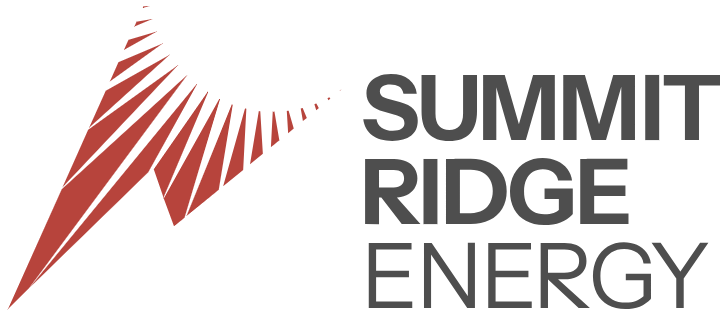
Bronze


Related content
Explore the program

The Global Energy Center develops and promotes pragmatic and nonpartisan policy solutions designed to advance global energy security, enhance economic opportunity, and accelerate pathways to net-zero emissions.
Atlantic Council TV
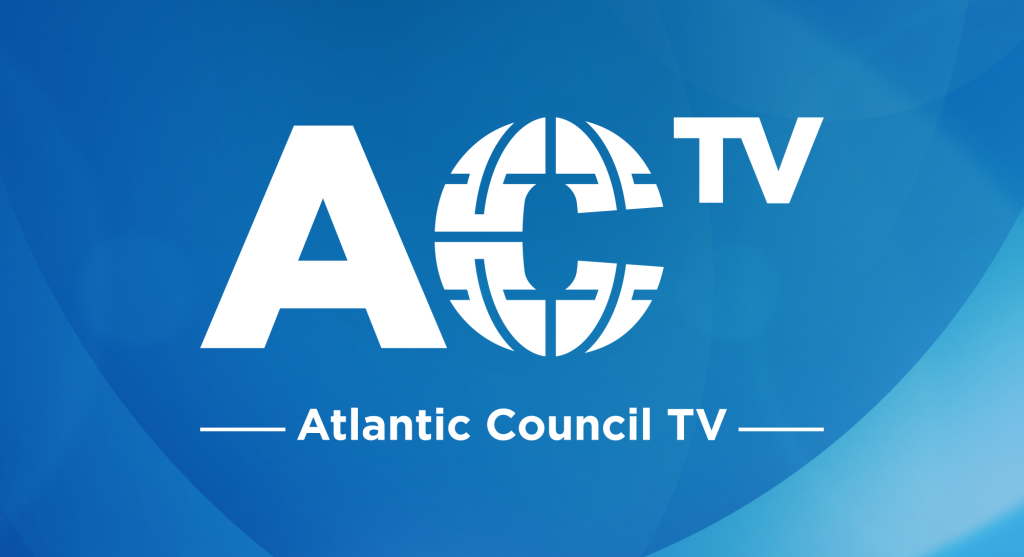
Watch this event and more content on ACTV
Follow the conversations shaping our world. Available on all major platforms.
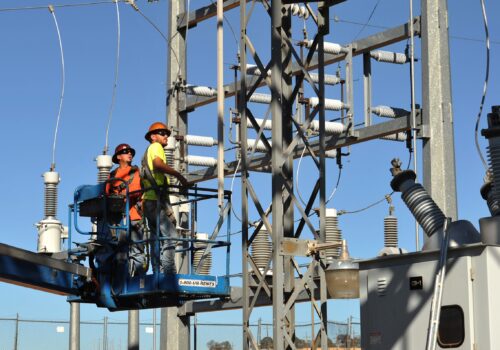
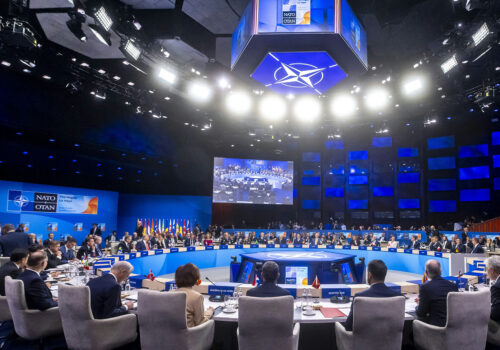

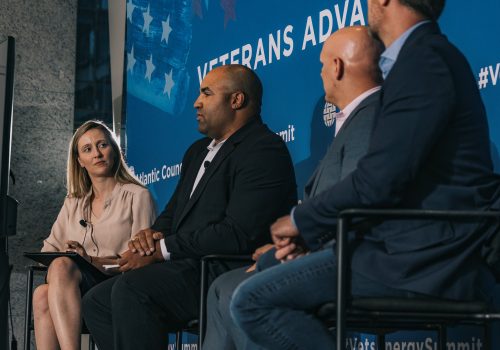
Follow the conversation on X with @AtlanticCouncil and @ACGlobalEnergy using the hashtag #ACEnergy